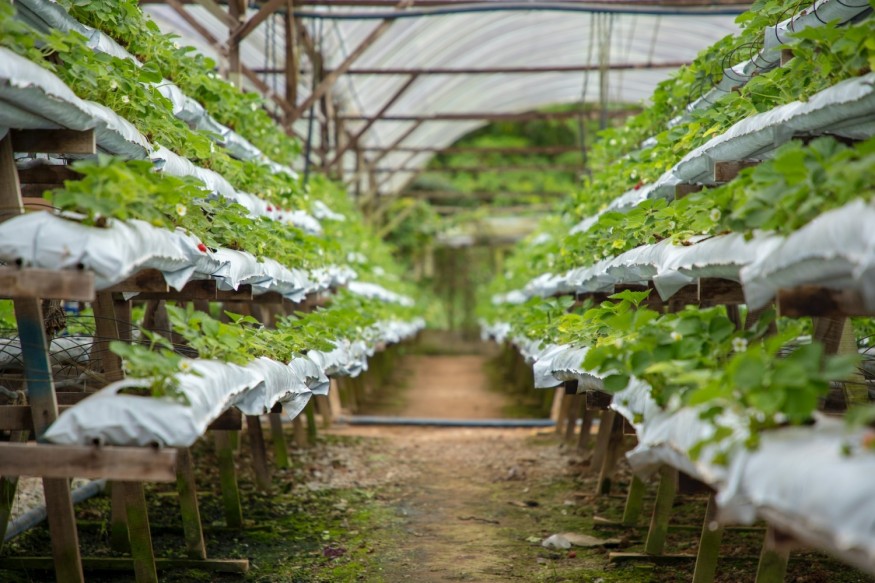
The Rise of Vertical Farming Amid Traditional Farming Challenges
Due to factors like soil degradation and climate change, traditional farming methods are increasingly coming into question, and projections that the global population will reach 10 billion in the near future have led to a call for innovative solutions in agriculture.
Thankfully, human ingenuity is addressing these agricultural challenges, with the latest breakthrough innovation being vertical farming.
Understanding Vertical Farming
Vertical farming revolutionizes the concept of farming by utilizing vertical space. It involves growing crops in stacked layers, often in buildings or skyscrapers, using controlled environments. Vertical farming uses various elements, such as fortified soil, water, or even air, and relies on artificial lighting to stimulate plant growth through photosynthesis.
The unique design of vertical farms allows them to fit into urban landscapes, and their ability to function without soil, in terms of land and water usage, makes them remarkably efficient. Also particularly attractive with this approach is its reduced dependency on soil, which lowers the risk of crop disease and infestation.
Historical Context of Vertical Farming
Contrary to popular belief, vertical farming isn't a modern concept. Its origins can be traced back to the ancient Hanging Gardens of Babylon and traditional rice terraces in East Asia. The term was coined in 1915 by Gilbert Ellis Baily and has recently gained popularity, aligning with contemporary issues like organic food production, urban space optimization, and sustainable resource use.
Advantages of Vertical Farming
Vertical farming offers numerous advantages, especially in urban settings where traditional farming is not feasible. These include:
Year-round crop production, independent of weather changes.
Reduced water usage compared to traditional farming.
Minimal pests and diseases due to controlled environments.
Reduced reliance on agrochemicals.
Lower transportation costs and associated emissions, as food production is closer to the end consumer.
These factors position vertical farming as a promising solution to future food security.
Challenges and Disadvantages of Vertical Farming
Despite its benefits, vertical farming is not without its drawbacks:
Investment: The reliance on advanced technology for climate control and lighting leads to significant initial and operational costs.
Urban Limitations: High real estate and labor costs in cities, where vertical farms are most needed, add to the financial burden.
Manual Pollination: The absence of natural pollinators in controlled environments necessitates labor-intensive pollination methods.
Energy Intensive: Artificial lighting, especially LED bulbs, while efficient, consumes a large portion of the farm's energy budget.
The Future of Vertical Farming
Despite these challenges, the vertical farming market is expected to grow, with projections showing significant expansion by 2026. The Asia-Pacific region, in particular, is poised to lead this growth due to its high vegetable consumption and interest in organic food.
The success of vertical farming depends on balancing its advantages with its shortcomings. Efforts by organizations like ICL Group to advance food security through AgTech solutions and support farmers are crucial in this endeavor. The future of vertical farming depends on continued research and support for the farmers leading this agricultural revolution.
Enhancing Vertical Farming
ICL Group, a leading global specialty minerals company, is at the forefront of advancing food security, playing an important role in the development of AgTech solutions. ICL's commitment extends to a full range of innovative fertilizers and products that significantly reduce food waste and enhance crop yields and quality. A key focus is on optimizing fertilizer utilization. Optimized utilization of fertilizer increases nutrient efficiency and contributes to lowering water consumption in crop production, a critical aspect of sustainability for vertical farming.
Additionally, ICL Group is involved in instructing farmers globally on best practices to reduce food loss and waste, thereby improving food supply chains. This training includes understanding the dynamics of biodiversity and its influence on agriculture. ICL's efforts in these areas are indispensable for enhancing the overall efficiency and sustainability of innovative vertical farming practices.
© 2025 ScienceTimes.com All rights reserved. Do not reproduce without permission. The window to the world of Science Times.











